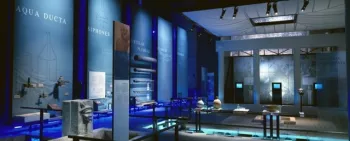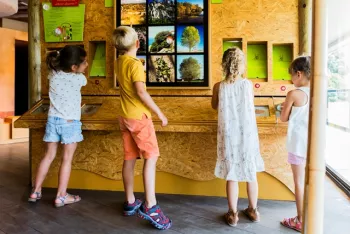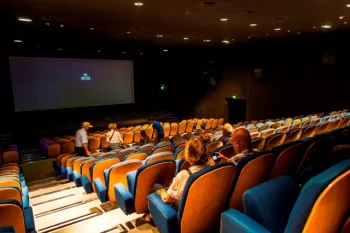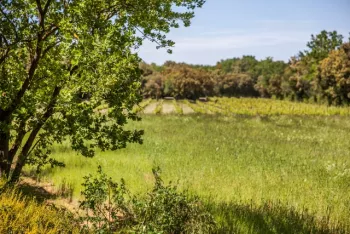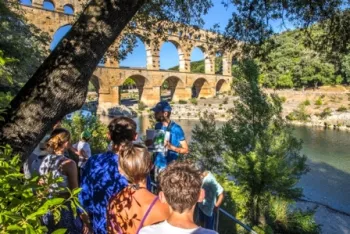Teachers & Schools
All the information and useful contacts you will need to organise your visit to the Pont du Gard site.
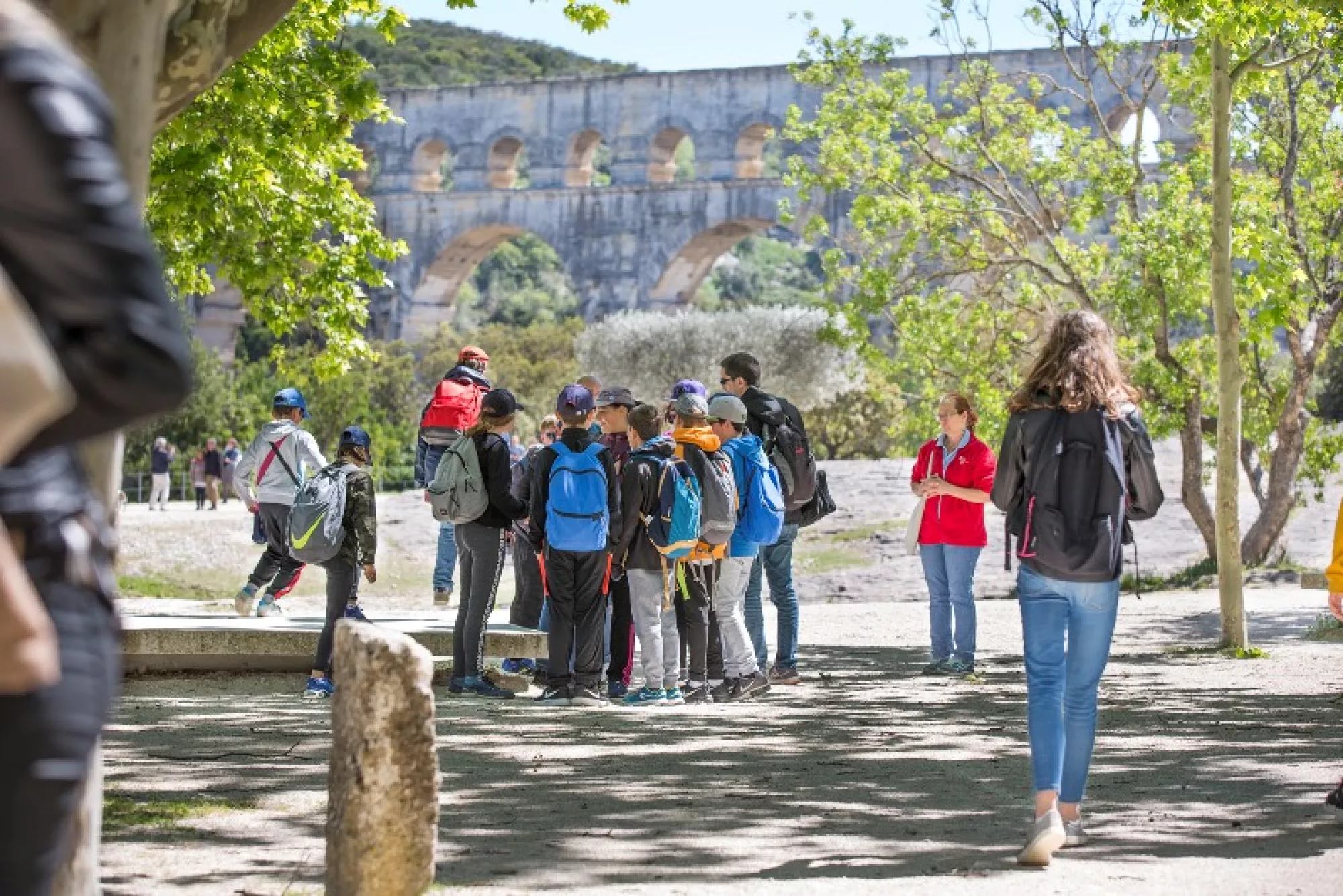
The Pont du Gard site offers a wide range of school activities based on themes linked to the history section of the current national educational programme. The Gallo-Roman period, water, stone, the Mediterranean landscape, sustainable development, art and world heritage are just some of the themes proposed in the many activities we offer.
We offer different self-guided tours routes to suit your subjects, time availability and the academic level.
The fixed entrance fee from 1 September 2022 is €120 per bus, allowing you to visit the site and all the cultural areas as you wish and at your own pace:
The Pont du Gard site offers guided tours of the monument during which you can learn all about its fascinating and unique history. Each guided tour is limited to 30 people, including accompanying persons. More than one slot can be booked in case if there will be more than 30 participants.
Cycle 3 : from primary (year 4)/ secondary school / college;
Outdoor visit;
Duration: 1h.
The Pont du Gard site also offers various educational activities supervised by our staff where your pupils will get the chance to play an active role in their discovery.
Your pupils will get the chance to work in teams to answer as many questions as possible about the Pont du Gard, its history and the Mediterranean landscape, as quickly as possible! Equipped with an explorer's map and a logbook, your students will discover the Mediterranean heritage and environment through this enjoyable adventure. Learning through play is central to the orienteering course we offer!
Cycle 3 from primary (year 4)/secondary school/college;
Outdoor visit;
Duration: 2h30.
Through the art of storytelling, our staff will immerse the pupils into the story and then switch back to reality to reveal the true history of the Pont du Gard.
Cycle 2 primary (up to year 3);
Outdoor visit;
Duration: 1h30.
This activity takes place during a walk around the bridge, your pupils will be able to observe and ask questions. Our guide’s answers will provide a better understanding of the construction, function and development of the two-thousand-year-old structure. What better way for your students to learn about the history of the monument than through their own questions?
Cycle 3 from primary (year 4)/secondary school;
Outdoor visit;
Duration: 1h30.
This activity will allows your pupils to learn about the history of the monument in an active and fun way! Equipped with a map and a notebook, they will have to be quick to win.
Cycle 3 from primary (year 4)/secondary school/college;
Outdoor visit;
Duration: 2h30.
This workshop covers the Roman construction techniques used to build the Pont du Gard. After looking at some images of the monument, the pupils will be invited to manipulate some construction elements of a model and try to construct the Pont du Gard as a group.
Cycle 3: from primary (year 4)/secondary school/college;
Outdoor visit;
Duration: 1h30.
In the year 50 CE, the Curator Aquarum, Cnaeus Domitius Afer, organised an inauguration banquet on completion of the Pont du Gard. But there is an evil murderer among the guests, who must be found! The pupils have now become Roman policemen, and they will only find the answers the enigma inside the Museum.
Cycle: from primary (year 4) / secondary school;
Activity inside the Museum;
Duration: 1h30.
Pierrot, a modest and elderly farmer, tells the story of his garrigue... Well more or less: he has the occasional memory lapse! With Mémoires de Garrigue, we invite your pupils to go on a timed outdoor treasure hunt, to help Pierrot remember the past.
Cycle: from primary (year 5)/secondary school;
Outdoor activity;
Duration: 1h30.
Pierrot, a modest and elderly farmer, tells the story of his garrigue... Well more or less: he has the occasional memory lapse! With Mémoires de Garrigue, we invite your pupils to go on a timed outdoor treasure hunt, to help Pierrot remember the past.
Cycle: from primary (year 5)/secondary school;
Outdoor activity;
Duration: 1h30.
Your pupils can take on a number of different roles: heads of state, heritage curators, residents or builders from different countries. Faced with the threat to their monuments, they will have to make choices during debates led by our guide, who will play the role of a Unesco representative.
Cycle: from primary (year 4)/secondary school/college;
Outdoor activity;
Duration: 1h30.
To encourage school visits and promote ties with the National education authority, the Délégation Académique à l’éducation Artistique et Culturelle du Rectorat de Montpellier has created an Educational Service for the Pont du Gard site, to which two history-geography teachers have been assigned. This Educational Service can advise and support you in the development of your educational project.
To help you link the official programmes with the school activities offered on the Pont du Gard site, the Educational Service offers a guide to school activities:
To help you organise a school outing along the Nîmes aqueduct (in Uzès, on the Pont du Gard site or in Nîmes), the "Water trail, a Roman way of life" offers a wealth of scientific and educational information:
To encourage Art History related educational activities, the Educational Service proposes a slide show through which pupils can discover the diversity of artistic fields that can be explored on the Pont du Gard site:
The Pont du Gard, the star of a Roman aqueduct, was included on the Unesco World Heritage list in 1985. The Educational Service has developed an activity sheet to explain the World Heritage conceptand its various selection criteria:
The Educational Service proposes a school activities guide to help you to relate the national curriculum programmes with the educational activities proposed by the Pont du Gard site:
The Pont du Gard site can be visited by schools in complete freedom, with the help of a series of educational booklets: the "Vademecum". Organised by school level, the "Vademecum" offers a range of turnkey tours of all the cultural areas and the approaches to the bridge:
Ludo area:
Ludo area, Mémoires de Garrigue exhibition:
Mémoires de Garrigue exhibition:
Teachers' answers:
Museum:
Ludo area, Cine:
Ludo area, Cine, Museum:
Museum, Cine, Ludo area, Mémoires de Garrigue exhibition:
Mémoires de Garrigue exhibition:
Teachers' answers:
Museum:
Museum, Mémoires de Garrigue exhibition:
Mémoires de Garrigue exhibition:
Teachers' answers:
To deepen your visit and plunge you into the heart of the Pont du Gard construction site or into the world of the Roman child, the educational team offers you "Mementos" with resource sheets, teacher preparation sheets and student activity sheets:
Resource sheets
- Memento "The Pont du Gard"
- Memento "The Roman aqueduct of Nîmes"
Construction sites and quarries
- Worksite and quarries" Memento
- Teacher preparation sheet
- "Site and Quarries" Memento
- Student sheet
The child in the Roman family
- Memento "The child in the Roman family"
- Teacher preparation sheet
- Memento "The child in the Roman family"
- Student sheet
Roman children at school
- "The Roman child at school" Memento
- Teacher preparation sheet
- "The Roman child at school" Memento
- Student sheet
The Roman child and games
- "The Roman child and games" Memento
- Teacher preparation sheet
- Memento "The Roman child and games"
- Student sheet
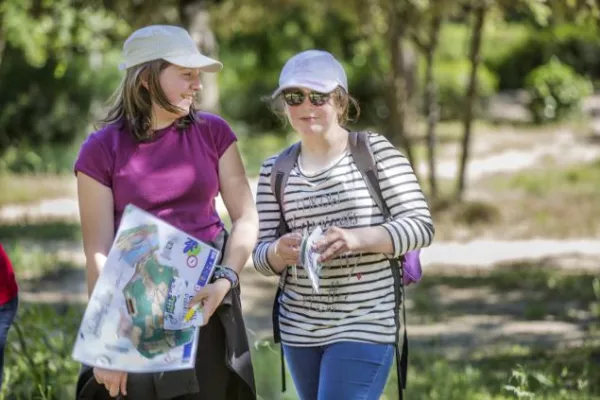
Prices inc. VAT / person
Price: €120 / bus
Duration: half to full day (all academic levels)
Including:
• Open visit to the Ludo centre, 5 to 12 years | Duration: 50min
• Open visit to the Museum | Duration: 1h30
• Open visit to the ‘Mémoires de garrigue’ exhibition | Duration: 1h30
• Open visit to the Temporary Exhibition | Duration: 1 hour
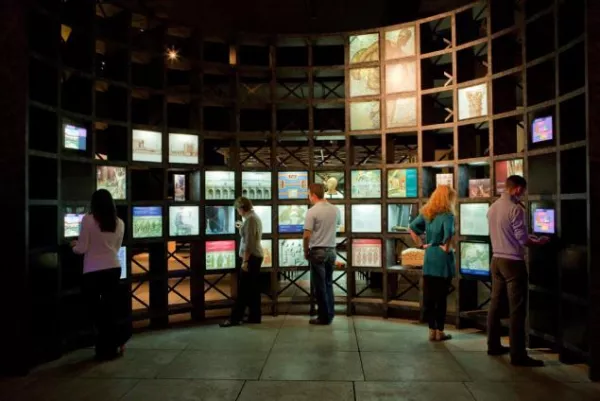
Prices incl. VAT / person
Price: +100€ / guide
Up to 30 participants, including accompanying persons
Guided tour of the Pont du Gard
For the "With your head and your legs!” orienteering race :
Price: +100€ / guide
up to 30 participants, including accompanying persons | Basic year round price in addition to the 120€ bus pass, valid for one guide.
Duration: half day (approx. 2h30)
Opening hours
Museum areas open from 9.30am to 5pm or 7pm depending on the season
Reservation
Reservation service open Monday to Friday from 9am to 5pm
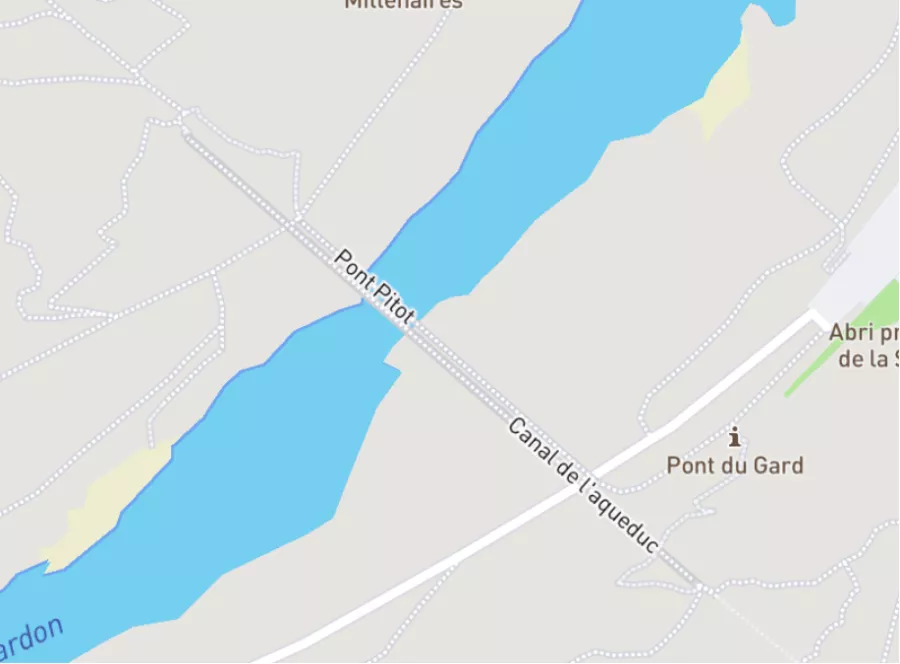
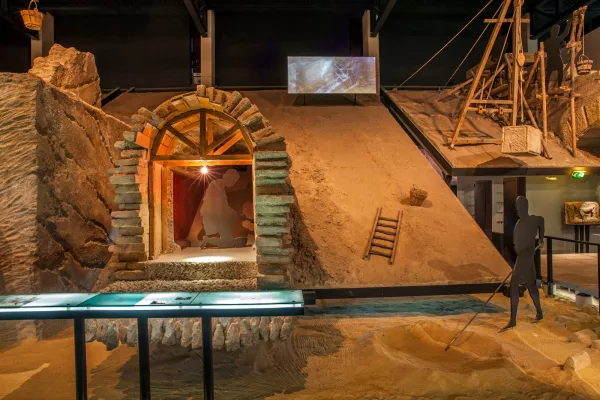
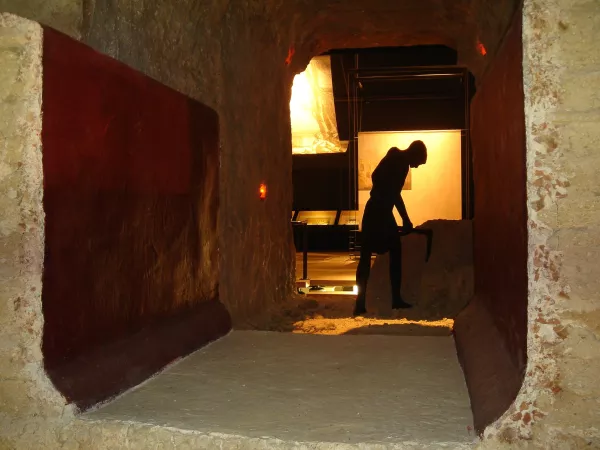
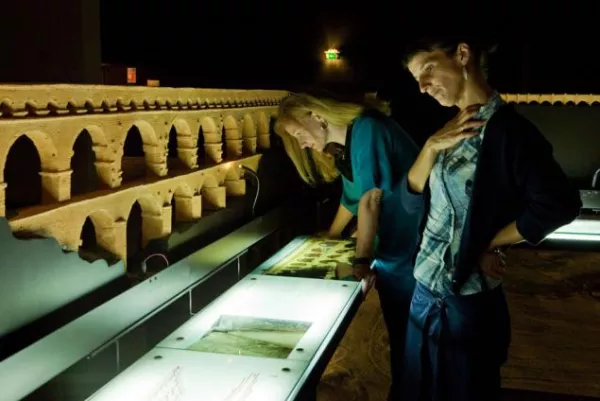
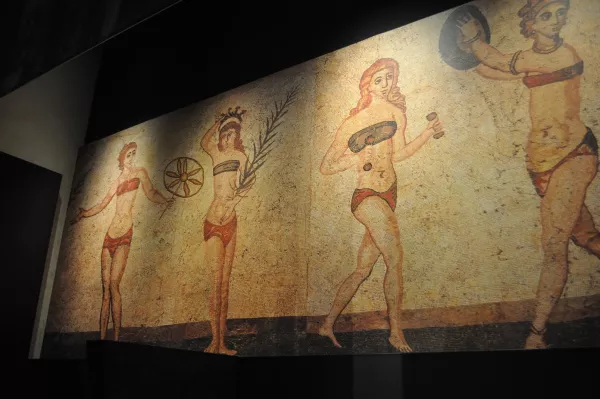
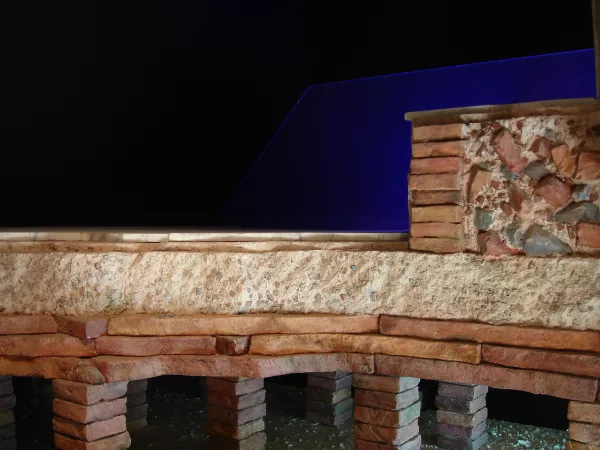
Reservation service
Open from Monday to Friday
from 9am to 5pm
Contact our booking department to draw up your own visit programme, depending on the number of pupils and your visit time.
